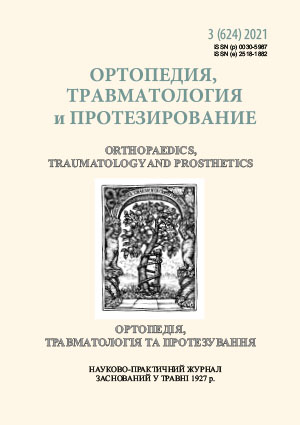MOLECULAR HYDROGEN GENERATOR GVCH LIFE
DOI:
https://doi.org/10.15674/0030-59872021365-68Keywords:
Нydrogen generatoR GVCh Life, molecular hydrogen, hydrogen water, therapy of various diseasesAbstract
Molecular hydrogen is one of the effective antioxidants, which not only does not disrupt normal metabolism in the body, but also activates its antioxidant systems. Hydrogen-saturated water has antioxidant, anti-inflammatory, anti-allergic, anti-apoptotic properties, stimulates energy metabolism and contributes to the systemic recovery of the body. It is used as a therapeutic factor for the treatment of patients with various pathologies: arterial hypertension, coronary heart disease, diabetes, obesity, metabolic disorders, disorders of the musculoskeletal system. The article discusses the various methods of obtaining molecular hydrogen and hydrogen water (direct and indirect saturation). Technical characteristics are described and features of the hydrogen generator GVCh Life (manufacturer LTD «Chemtest Ukraine+», Kharkiv, Ukraine), which produces molecular hydrogen (purity of which is 99.99 %, productivity — 100 ml/min) and saturates water with it (https://chemtest.com.ua/generator_vodorodnoy_vodi_i_dihanie_gvch_life). In contrast to the problems of most known generators in the device GVChLife is completely no contact of the electrodes with water, so it is not subject to electrolysis and is not saturated with metal ions. Water saturated in this way has the following characteristics: redox potential 560 mV, hydrogen concentration 1.0–1.15 ppm
(water volume 1 l, saturation duration 10 min). The generator can be used for both hydrogen saturation and hydrogen inhalation. In the case of therapeutic use of hydrogen water to obtain it, you can use any drinking water (spring, prepared or non-carbonated bottled), hydrogen inhalation using nasal cannulas. Inhalation of pure hydrogen gas (99.99 %) for 30 minutes is equal to the use of 15 liters of hydrogen water (concentration 1.1–1.2 ppm). Conclusions. The developed MoHC Life molecular hydrogen generator is safe to use, without special requirements during operation. It can be successfully used in the complex therapy of patients with various diseases, including musculoskeletal system.
References
- Sun, X., Ohta, S., & Nakao, A. (2015). Hydrogen molecular biology and medicine. Springer Science + Business Media Dordrecht. https://doi.org/10.1007/978-94-017-9691-0
- Ohta, S., Lee, G. H., Sun, X. J., Qin, S., & LeBaron, T. W. (2017). Definitions and Standards on Hydrogen Measurements and Certifications [web source]. First proceedings from the International Hydrogen Standards Association (IHSA) announced at the International Hydrogen Industry Development Forum, organized by International Molecular Hydrogen Association (IMHA) in Guangzhou, China (Sept. 14, 2017). Available from: https://jhypa.org/wp-content/uploads/2018/03/IHSA-Hydrogen-standards-2017.pdf
- Makolinets, V.I., Graschenkova, T.M., & Makolinets, K.V. (2021). Molecular hydrogen as a possible therapeutic factor in complex rehabilitation therapy of patients with pathology of the organs of support and movement (literature review). Orthopedics, traumatology and prosthetics, (1), 92–97. https://doi.org/10.15674/0030-59872021192-97. [in Ukrainian]
- Ono, H., Nishijima, Y., Adachi, N., Sakamoto, M., Kudo, Y., Kaneko, K., Nakao, A., & Imaoka, T. (2012). A basic study on molecular hydrogen (H2) inhalation in acute cerebral ischemia patients for safety check with physiological parameters and measurement of blood H2 level. Medical Gas Research, 2(1), 21. https://doi.org/10.1186/2045-9912-2-21
- Ishibashi, T. (2019). Therapeutic efficacy of molecular hydrogen: A new mechanistic insight. Current Pharmaceutical Design, 25(9), 946-955. https://doi.org/10.2174/1381612825666190506123038
- Yoneda, T., Tomofuji, T., Kunitomo, M., Ekuni, D., Irie, K., Azuma, T., ... & Morita, M. (2017). Preventive effects of drinking hydrogen-rich water on gingival oxidative stress and alveolar bone resorption in rats fed a high-fat diet. Nutrients, 9(1), 64. https://doi.org/10.3390/nu9010064
- Kamimura, N., Nishimaki, K., Ohsawa, I., & Ohta, S. (2011). Molecular hydrogen improves obesity and diabetes by inducing hepatic FGF21 and stimulating energy metabolism in DB/DB mice. Obesity, 19(7), 1396-1403. https://doi.org/10.1038/oby.2011.6
- Ge, L., Yang, M., Yang, N., Yin, X., & Song, W. (2017). Molecular hydrogen: A preventive and therapeutic medical gas for various diseases. Oncotarget, 8(60), 102653-102673. https://doi.org/10.18632/oncotarget.21130
Downloads
How to Cite
Issue
Section
License

This work is licensed under a Creative Commons Attribution 4.0 International License.
The authors retain the right of authorship of their manuscript and pass the journal the right of the first publication of this article, which automatically become available from the date of publication under the terms of Creative Commons Attribution License, which allows others to freely distribute the published manuscript with mandatory linking to authors of the original research and the first publication of this one in this journal.
Authors have the right to enter into a separate supplemental agreement on the additional non-exclusive distribution of manuscript in the form in which it was published by the journal (i.e. to put work in electronic storage of an institution or publish as a part of the book) while maintaining the reference to the first publication of the manuscript in this journal.
The editorial policy of the journal allows authors and encourages manuscript accommodation online (i.e. in storage of an institution or on the personal websites) as before submission of the manuscript to the editorial office, and during its editorial processing because it contributes to productive scientific discussion and positively affects the efficiency and dynamics of the published manuscript citation (see The Effect of Open Access).














